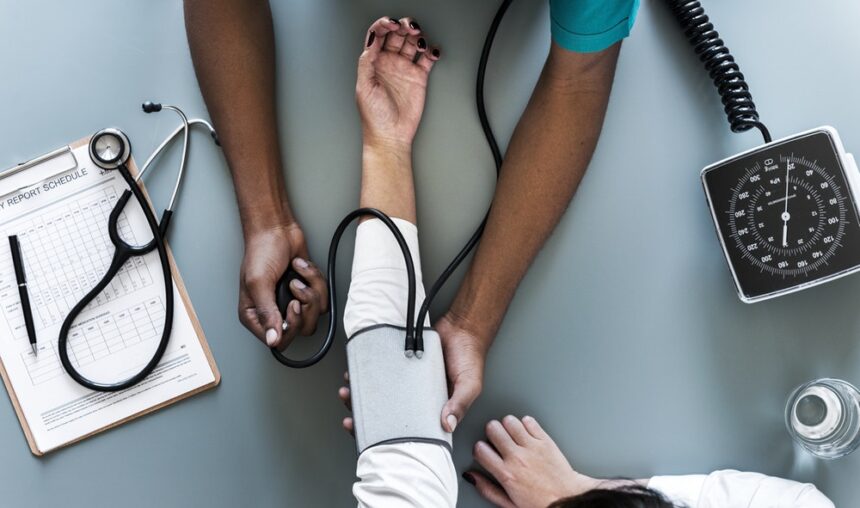As doctors, we are committed to providing quality, equitable care to all patients, but if we listen to our patients, it quickly becomes clear: women aren’t getting proper treatment. They go undiagnosed even when they have serious conditions, face insensitive care from providers, and rely on tests, medications, and devices designed with men’s bodies in mind. Worst of all, women are regularly told that their symptoms are made up, an expression of psychological dysfunction. We may not call it hysteria anymore, but we still treat women as though they are a lesser class of person.
To provide women with competent, compassionate care, we need to rethink what happens in our exam rooms and during the research process – and we need to listen to women. The following cases are just the tip of the iceberg when it comes to how healthcare is failing women.
More Than Period Pain
Menstrual pain can be a serious problem for women, keeping them from participating in daily life for several days each month. This is what happened to Katy Seppi when she first got her period; she regularly missed school during her teen years due to the pain. Over the next 20 years, doctors dismissed her symptoms as ovulation, irritable bowel syndrome, and even psychological problems. It was only when Seppi struggled to get pregnant that her symptoms were properly addressed. She had endometriosis.
Endometriosis, a condition characterized by the growth of endometrial cells outside the uterus, affects 1 in 10 women and it goes far beyond a case of bad cramps. Seppi’s doctors missed the mark because it can also cause gastrointestinal symptoms, pain with intercourse, and, of course, infertility. But if so many women have it, why is endometriosis so widely ignored?
The simple answer to this question is that, as doctors, we don’t have a good understanding of endometriosis. Like other conditions that predominately affect women, there’s little research money available, and since women’s pain is commonly undertreated, doctors find it easy to ignore their complaints as malingering. If we accept that women’s pain is real, though, we’re obligated to run tests and provide treatments. And we’re responsible for cutting down the time to diagnosis – on average, women with endometriosis wait 8.5 years from onset to diagnosis, and that’s unacceptable.
Sensitive Symptoms
Talking about menstrual symptoms can be stigmatizing, but there’s a whole specialty committed to reproductive health, which is why, inside the exam room, other symptoms can be much more embarrassing to discuss. For example, imagine being a 19-year-old girl with hair loss, fainting, rashes, and fatigue. While the latter symptoms are worrying, hair loss is embarrassing for a teenage girl – for women of any age, really. But it can also be a symptom of a serious health problem, so it’s important to address.
Unlike men, most of whom experience some degree of hair loss, typically due to androgenetic alopecia (male pattern baldness), hair loss in women is less common; about 30% experience it at some point in their lifetime. This may be due to hormone imbalances, stress, or even styling habits, but hair loss can also be a sign of a thyroid disorder, anemia, lupus, or a skin disorder. These conditions can be serious if they’re not treated properly.
If we want patients to discuss sensitive symptoms, we need to build a sense of trust from the first visit, and that goes both ways. Our patients need to trust us, but we also need to trust and believe our patients. This can be a big leap because, as the health writer Maya Dusenbery reports, medicine suffers from a trust gap – a tendency for doctors to criticize and doubt women rather than affirm and empathize with them.
Thinking Systemically
We will only be able to provide women with higher quality care if we think about the problem from a systemic angle. Just as we can only provide care to patients from minority populations by learning culturally competent care practices, we can only support women by learning gender-specific healthcare approaches. Countless health conditions, especially autoimmune diseases, predominately affect women, and women are also exclusively impacted by high maternal mortality rates in the US. We aren’t doing our best for 50% of the population.
As with so many other issues, women’s voices are silenced in medical offices and overlooked in research; it often takes a dramatic failure to realize how serious a mistake that is. Women are suffering and living in shame because of conditions we could diagnose and alleviate, but only if we open our doors and think critically about how women’s health is different from that of men.







